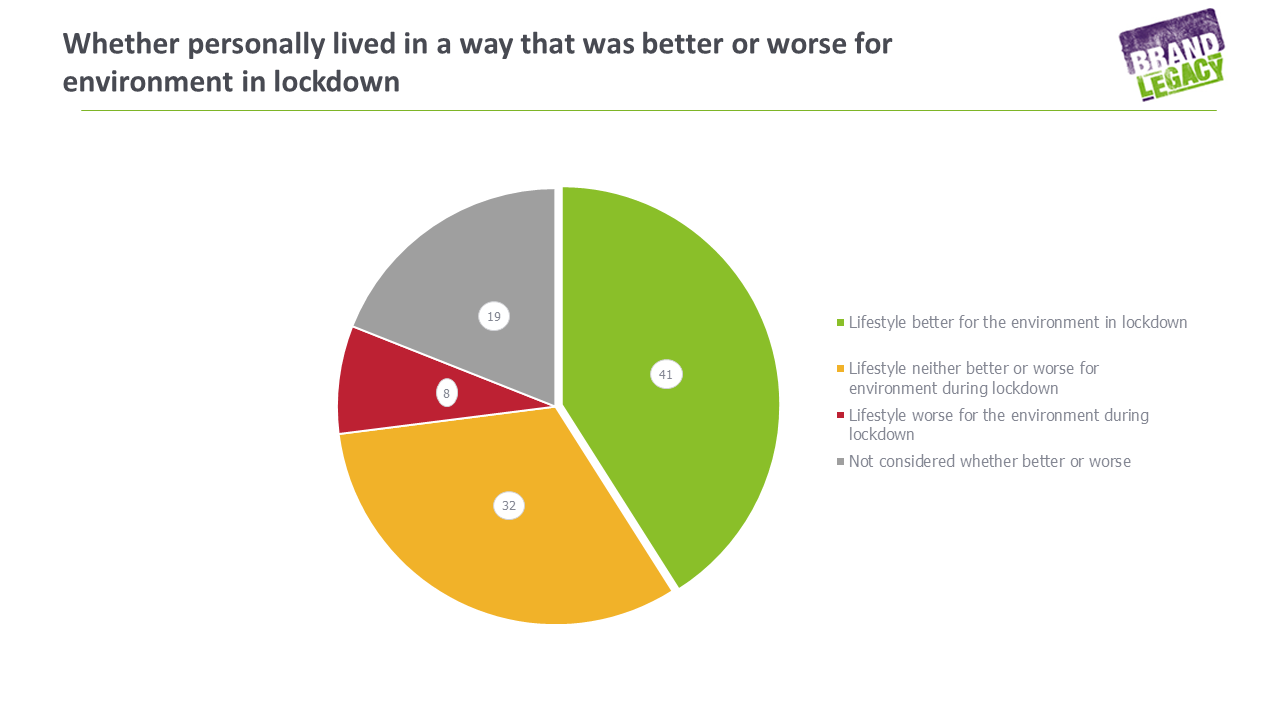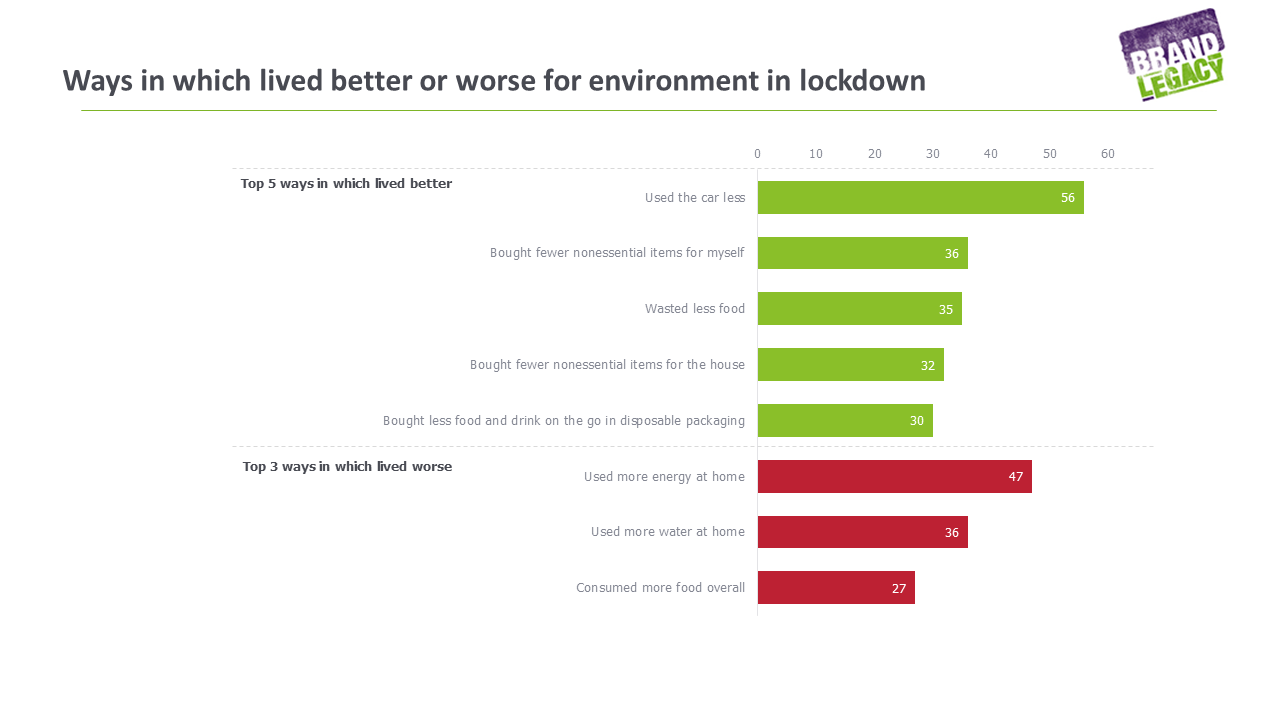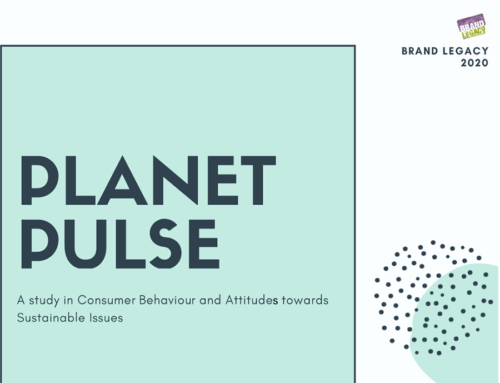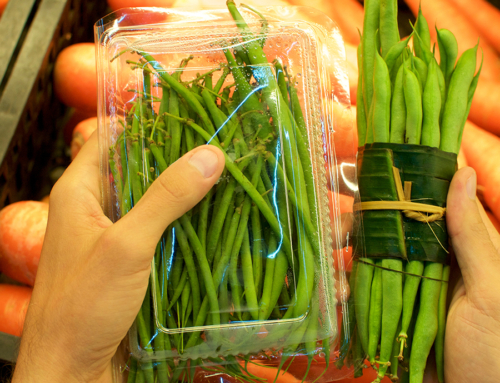Was the ‘lockdown lifestyle’ more environmentally friendly?
There’s been plenty of media focus on how lockdown through April, May and June enabled many of us to value our environment more – for some people at least it was definitely a case of wake up and smell the flowers, but not for everyone! Appreciation of our local green spaces, noticing the birdsong, the lack of vapour trails in the sky or breathing fresh air were all common themes. But while the UK public might have appreciated the environment more, did they actually think their own lifestyle changed in a way that benefitted the environment? We checked a few things out on the first wave of Planet Pulse, Brand Legacy’s barometer on the UK’s sustainable behaviours and attitudes.
41% think their lifestyle changes in lockdown were positive for the environment.

In our nationally representative sample of 1,000 UK adults, 41% thought they lived in a way that was better for the environment in lockdown, while only 8% thought they were living in a way which was worse. But of course that still leaves just over 50% who either didn’t think that their lifestyle had improved or declined, or hadn’t really considered the issue.
The biggest impact is from less car usage.

We also asked in what specific ways people felt they had lived in a way that was better or worse for the environment in lockdown. It’s clear that lower car usage is the most widely recognised contributor to a greener lifestyle, which may further increase the drive towards more sustainable travel solutions as we emerge into the new world. And of course the government are now actively supporting cycling as a healthier and greener alternative for shorter journeys.
Apart from lower car usage, people were also consuming more sparingly in many areas – wasting less food, buying less food and drink on the go in disposable packaging, and spending less on personal or non-essential items. However, there was a flip side to spending longer at home – higher energy and water consumption, and overall food consumption at home are most seen as contributors to a less sustainable lifestyle.
Higher income households felt the green effect more
When compared with other socio-economic groups, ABs were more likely to agree that their behaviours had become more sustainable in lockdown. The data suggests they noticed more change than other groups from reducing both car use and on the go consumption, (reflecting the fact that their higher income allows them more of both in the first place.)




